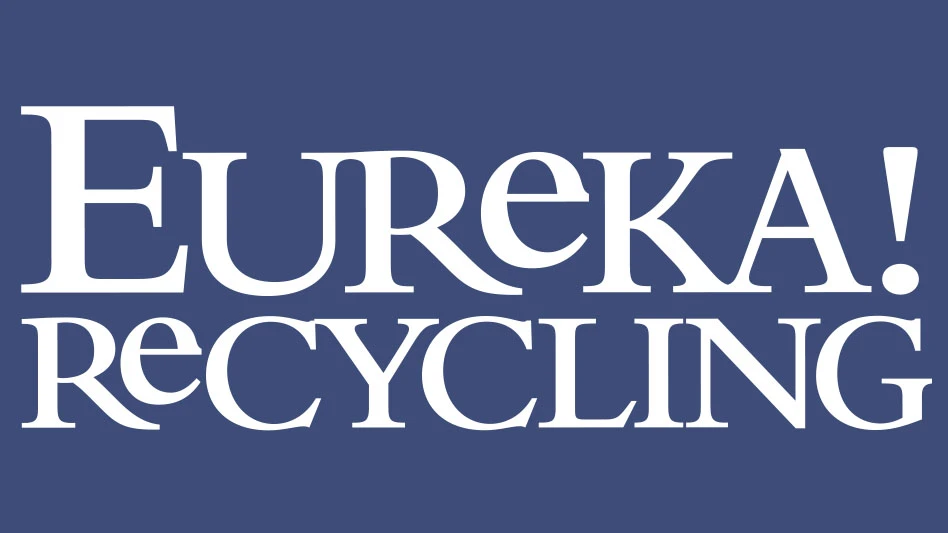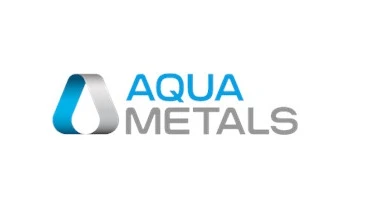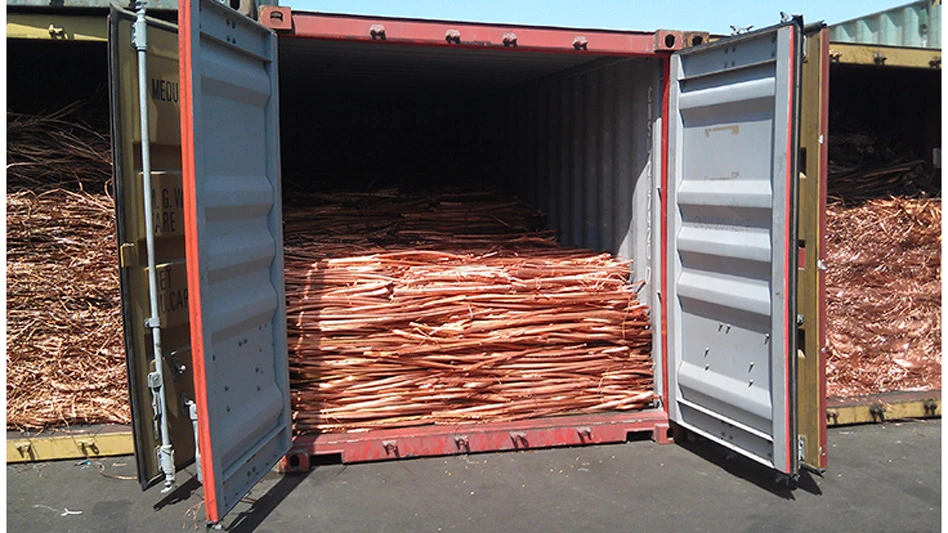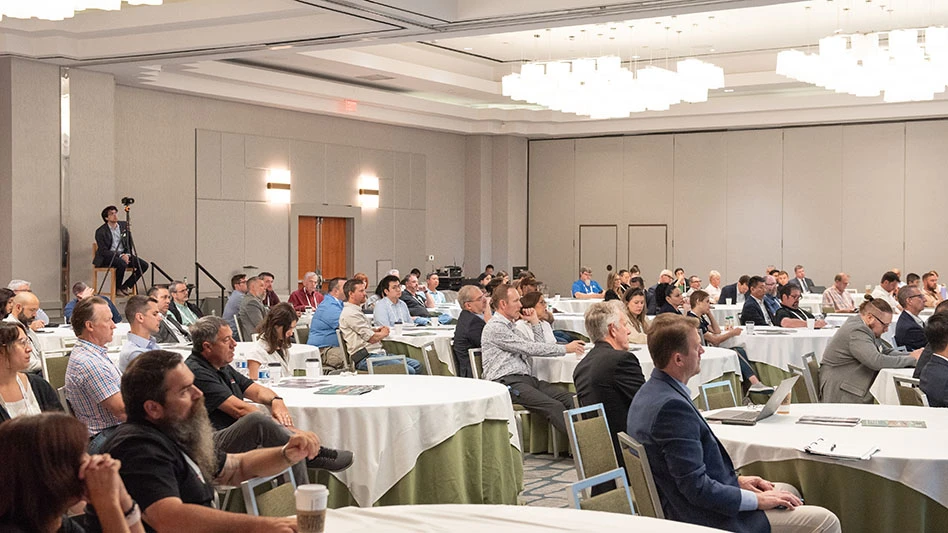
Though plastics account for a small percentage on a tonnage basis of the incoming material stream at a material recovery facility, they have become a foremost concern among consumers, recyclers and brands with the increased conversation around reducing plastic waste having led to minimum recycled-content laws.
“It’s 10 percent of the stream but 100 percent of the mindshare,” said David Biderman, president of Silver Spring, Maryland-based Solid Waste Association of North America, at the Plastics Recycling Conference, which was March 7-9 outside of Washington. “It’s ubiquitous. It’s everywhere.”
The increased pressure on those in the federal government to address single-use plastics and to increase the plastic recycling rate has not yielded much success, but several states have taken their own steps.
California became the first state in the U.S. to require minimum postconsumer resin (PCR) content in plastic bottles with Assembly Bill 793, signed into law in October 2020, followed by the state of Washington, which enacted its own PCR minimum-content requirement in May 2021.
In July of last year, Maine became the first U.S. state to enact an extended producer responsibility (EPR) law for paper and packaging, requiring producers to finance stewardship organizations, thus bearing more responsibility for the packaging they put into the market. Oregon then followed suite, passing its own EPR legislation in August 2021.
The recycling industry is somewhat divided about which legislative approach is best suited to address the plastic waste issue, but many agree the changes are necessary and that little will get done to improve plastic recycling rates and increase supply without swift policy change.
“I think it’s fair to say we’ve not been optimizing recycling in the United States for decades,” Biderman said.
A look at the laws
California’s law sets a series of graduated minimum PCR-content standards for plastic beverage containers—the first of which went into effect Jan. 1—and seeks to improve the recycled plastic market by increasing demand. According to AB 793, plastic beverage containers sold or manufactured in California must include at least 50 percent PCR by 2030.
The beverage container law follows a separate law in California that was enacted in 2014. That law bans single-use plastic bags and requires all reusable plastic grocery bags be made with a minimum of 40 percent PCR. These reusable bags also must be recyclable and must be at least 2.25 millimeters thick, according to CalRecyle.
Speaking during a Jan. 6 webinar hosted by the Northeast Recycling Council and the Northeast Waste Management Officials’ Association called Recycled Content Mandates: The Good, the Bad and the Ugly, Mark Murray, executive director of Sacramento-based Californians Against Waste, said California has one of the nation’s most successful bottle bills, but more than 3 billion bottles still are dumped in landfills each year. Since China implemented its National Sword policy in 2018, banning the import of most postconsumer plastic scrap and other recyclables, so much more of that previously recycled material now ends up in landfills, he added.
These shortcomings surrounding plastics recycling have forced industry leaders to reevaluate their approaches to advocacy and legislation. In the webinar, speakers offered their thoughts on how to continue improving recycled-content mandates for the best economic and environmental results.
Washington’s recycled-content law requires PCR in plastic beverage bottles, in bottles used to package household cleaning and personal care products and in trash bags, with varying content standards and timelines for each product category. Plastic beverage bottles must have no less than 50 percent PCR content by 2031, trash bags no less than 20 percent PCR content by 2027 and plastic bottles for household cleaning and personal care products must have no less than 50 percent PCR content by 2031.
Murray said California “had some successes, we’ve had some failures, we’ve had a lot of false starts, and the main thing is it’s taken us an awfully long time to get to where we are.”
Resa Dimino, managing partner of Signalfire Group, a subsidiary of Ann Arbor, Michigan-based Resource Recycling Systems Inc., or RRS, also spoke during the Plastics Recycling Conference. She noted mandatory minimum recycled-content laws are intended to create stronger, more stable demand signals for recycled materials. California has had some type of recycled-content legislation since the 1990s, and Dimino said it has worked well to support markets for high-density polyethylene and plastic film.
EPR laws differ from recycled-content mandates in that they focus on the end-of-use treatment of consumer products and have the primary aim to increase the amount and degree of product recovery and to minimize the environmental impact of waste, according to a 2014 article by Michael R. Johnson and Ian P. McCarthy in the Journal of Engineering and Technology Management.
House Bill 1541, passed in Maine, was the first EPR law of its kind in the U.S. It requires stewardship organizations to manage and help develop methods to collect and recycle products on the producers’ behalf. According to law firm Beveridge & Diamond, Washington, the bill covers most packaging materials and contains exemptions for paint and beverage containers, small businesses and low-volume packaging producers. The firm also says the main function of the bill is to charge producers for the costs associated with managing and recycling packaging waste.
Oregon Gov. Kate Brown signed Senate Bill 582A—the Plastic Pollution and Recycling Modernization Act of 2021—into law last year. While recycled-content mandates are not part of this law per se, producer responsibility organizations must set fees for the covered products sold in the state. Fees are eco-modulated to account for the use of PCR, the product-to-package ratio, the choice of material, evaluation and disclosure of life cycle impacts and the recycling rate.
EPR bills also have been proposed in California, Hawaii, Maryland, Massachusetts, New Jersey and New York.
Progress in Washington
Biderman said he’s seen significantly more activity when it comes to recycling legislation on Capitol Hill over the past two years, which he said has led to some positive action—particularly with the signing of the Biden administration’s infrastructure bill. “This bill that was created ostensibly to help build roads and bridges and tunnels got other things to latch onto it.”
As part of the infrastructure bill, the Recycle Act of 2021 will provide support for recycling programs. It requires the U.S. Environmental Protection Agency (EPA) to establish a program to award grants to improve the effectiveness of residential and community recycling programs through public education and outreach. Biderman said the bill had bipartisan support but wasn’t moving through Congress on its own. Under the infrastructure law, the Recycle Act has appropriated $15 million annually for five years.
The infrastructure bill also included the Save Our Seas 2.0 Act, authorizing $275 million for solid waste recycling infrastructure.
But these funds are not expected to be doled out anytime soon.
“The idea is that by the end of the current fiscal year … [the EPA] will have a Federal Register notice about these grant programs, but they don’t expect the grant money to be given out until the very end of this calendar year, which I’m concerned really means 2023,” Biderman said.
He added, “There is money out there for educating people not to put the wrong thing in a bin, for a company to get a baler or more likely robotics to help their system out. There’s money out there that’s been appropriated. We need to make sure it gets to the people who need it before more communities give up on curbside recycling.”
Biderman said there’s more interest in EPR legislation now than there’s ever been, particularly as the concept of the circular economy has gained traction.
He added, “I wasn’t happy in 2018 when China imposed National Sword, but looking back now four-and-a-half years, if it wasn’t for that, I don’t think we’d see as much policy-related activity that we have now.”
Policy to drive supply
Some plastics reprocessors have expressed concern that supply will be insufficient to meet demand and thus fulfill these new PCR requirements, which could influence pricing.
“If we don’t increase supply at the same time as we [enact legislation], we’re going to just cause crazy price increases without any improvement in recycling,” Dimino said. “So, these are really good, solid policies, but they have to be coupled with supply-side policy to make sure ... we’re supporting both sides of that system to get some real balance,” she added.
Dimino noted the increased activity at the state level, saying that while each state takes a slightly different approach, the focus is on engaging producers to finance the recycling system.
Dimino and Biderman, as well as the industry experts who participated in the January webinar, noted beverage container deposit legislation, or bottle bills, are a straightforward way to increase supply while simultaneously improving recycling rates. States with bottle bills have an average beverage container recycling rate of about 60 percent, while nondeposit states average 24 percent, according to the Container Recycling Institute of Culver City, California.
Currently 10 states have container deposit legislation: California, Connecticut, Hawaii, Iowa, Maine, Massachusetts, Michigan, New York Oregon and Vermont. Dimino said four of these states are considering expansions of their laws this year.
Dimino said, “The stakeholders in this world, in this recycling system, are really changing their perspectives and they’re starting to realize that policy is critical to solving some of these problems.”
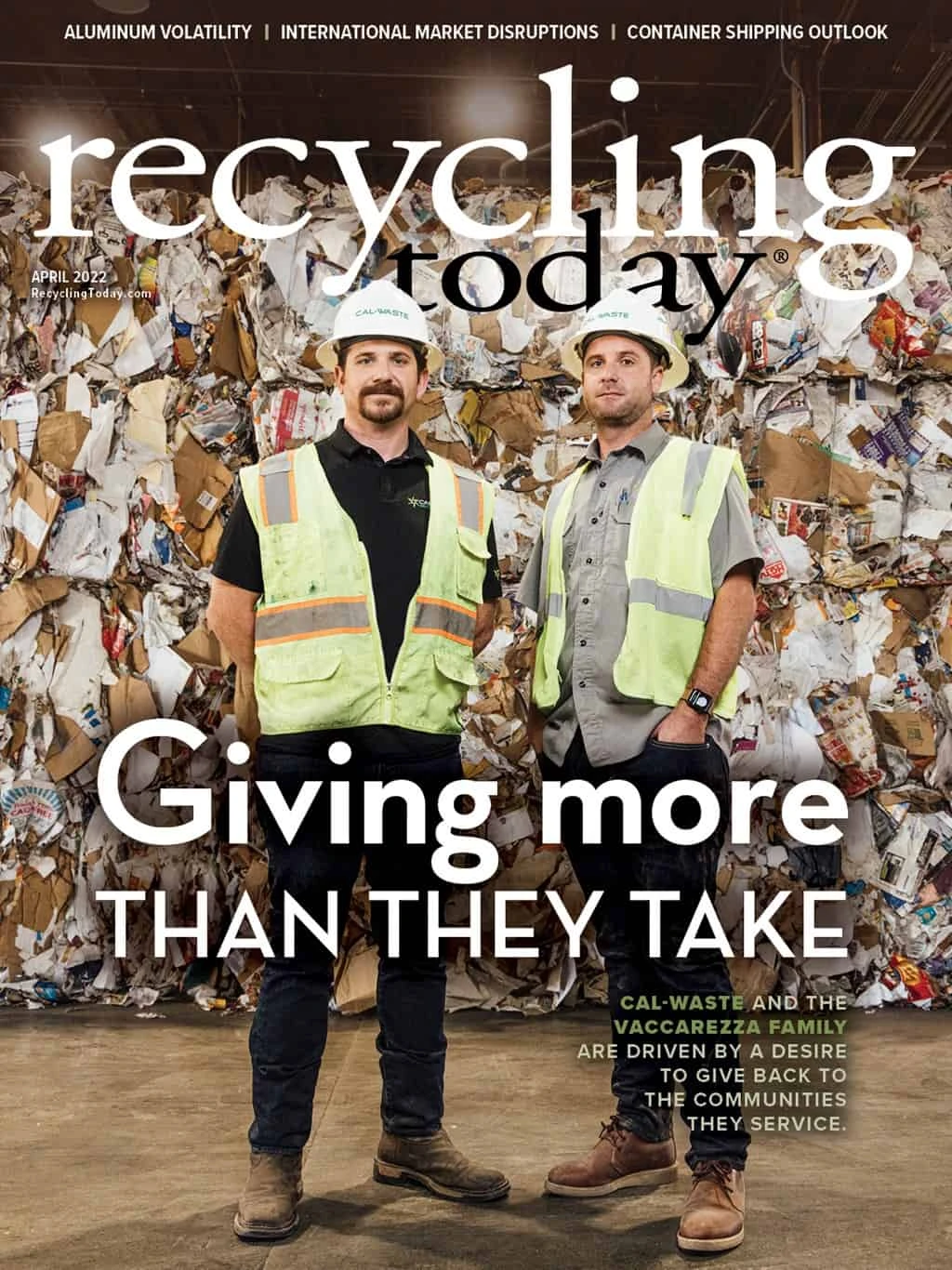
Explore the April 2022 Issue
Check out more from this issue and find your next story to read.
Latest from Recycling Today
- US Plastics Pact report charts expansion path for recycled content in packaging
- USTR announces phased measures designed to address China’s shipbuilding dominance
- APR, RecyClass release partnership progress report
- Clearpoint Recycling, Enviroo sign PET supply contract
- Invista expanding ISCC Plus certification program
- Redwood partnership targets recycling of medium-format batteries
- Enfinite forms Hazardous & Specialty Waste Management Council
- Combined DRS, EPR legislation introduced in Rhode Island
